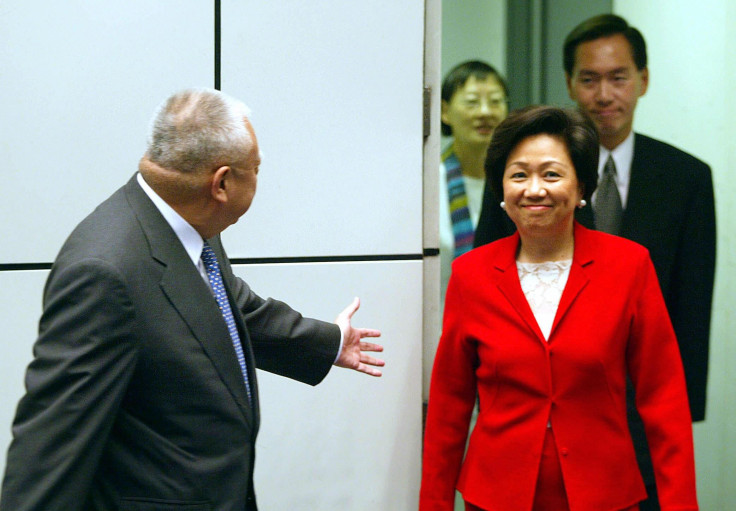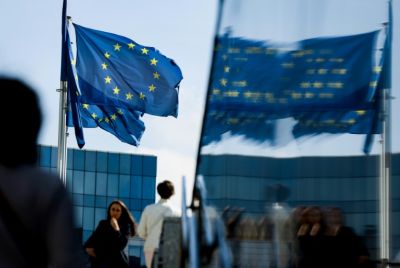HSBC Board Member Says Hong Kong Protesters Should Wait For Democracy, Citing Emancipated US Slaves

A board member of HSBC has prompted outrage by suggesting that pro-democracy protesters in Hong Kong should wait as long as emancipated slaves in the U.S. did for the right to vote.
Laura Cha, a board member of HSBC Holdings, who is also a member of Hong Kong's Executive Council and the chairwoman of the city's Financial Services Development Council, as well as a Hong Kong deputy to the National People's Congress, or NPC, in Beijing, made the comments at an event in Paris, according to a report from Hong Kong's Standard newspaper.
"American slaves were liberated in 1861 but did not get voting rights until 107 years later, so why can't Hong Kong wait for a while?"
According to local website Coconuts, Cha added: “My American Democrat friend said that he actually wanted to vote for Hilary [Clinton], but she lost in the preliminary elections, so he was forced to elect Barack Obama. So the democratic systems in the U.S., the U.K., and other Western countries’ democracies all screen [their candidates].”
At the time of writing, a petition on Change.org denouncing Cha's remarks had attracted just under 5,000 signatures. The petition says that it was “distasteful and insensitive [of Cha] to compare the voting rights of average, natural-born citizens of Hong Kong to the path of voting rights of slavery.” The document also calls on Cha to apologize for her remarks.
Asian blog EJInsight reported that Cha also defended Hong Kong police's use of tear gas against protesters, saying that it was the simplest and most peaceful deterrent, and that it was commonly used in many countries.
HSBC's Asia Pacific chief Peter Wong declined to comment on her remarks while the Financial Services Development Council did not immediately respond to a request for comment, according to a report from Reuters.
Cha is not the first member of Hong Kong's political establishment to make controversial remarks while discussing the city's nascent pro-democracy movement.
Hong Kong Chief Executive Leung Chun-ying caused controversy in an interview with several media outlets when he suggested that allowing full democracy in the city would allow poorer people to dominate the vote in the city, leading to more populist policies.
“If it’s entirely a numbers game and numeric representation, then obviously you would be talking to half of the people in Hong Kong who earn less than U.S. $1,800 a month… Then you would end up with that kind of politics and policies,” Leung said, in an interview with Western media outlets earlier this month.
In August, the NPC handed down a ruling, which dictated that candidates who wished to stand in the 2017 elections for the post of Hong Kong's chief executive would have to be approved by a nominating committee, which is widely seen as being stacked with pro-Beijing members. Since then, thousands of protesters have blocked off major roads in three areas of the city, including a six-lane highway outside of the Hong Kong government headquarters.
© Copyright IBTimes 2024. All rights reserved.






















